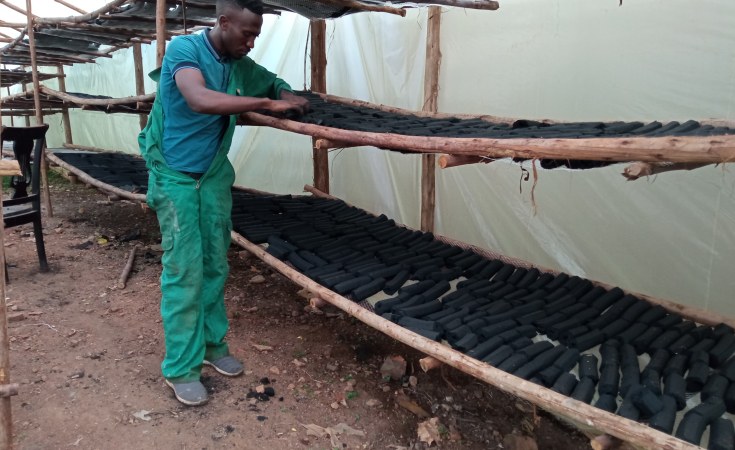Makerere University researchers have designed low-cost and efficient technologies to assist briquette production and utilization as a means of reducing the cutting of trees and forests for charcoal and firewood.
They are promoting briquettes as a healthier alternative biomass source of energy and an environmentally positive way of doing away with some waste. The researchers designed a briquette moulding machine and a biomass briquette dryer which were displayed at a research dissemination workshop and national stakeholders' engagement that shared findings from a baseline survey in 15 urban areas.
The practical operation and economic performance of the two were demonstrated at Yusuf Lule Central Teaching Facility auditorium on January 11, 2023. The function entailed accountability presentation for a project titled, 'Gender and utilization of briquettes as a replacement fuel for charcoal and firewood in Uganda', a multi-year four-component project that is still ongoing.
The project aims to identify bottlenecks to the widespread production and usage of briquettes, and develop cost-effective technical solutions for mass production. It also aims to increase energy conservation and youth employment.
ACTIVITY-BASED ACCOUNTABILITY
Prof Fred Masagazi Masaazi, chairman of the Grants Management Committee of Makerere Research and Innovation Fund, was the chief guest. He hailed the diverse composition of attendance as a sign of not only financial accountability but also activity-based accountability. Attendees included environmental engineers, community-based organisations, policymakers, briquette producers, funders, students and faculty.
Eng Edmund Tumusiime, a co-principal investigator, said they arrived at the two technologies after assessing that the common machines on the market take long drying hours, lack gender considerations, and are high-cost in purchase and operations.
Tumusiime said besides profiling a variety of alternative biomass raw materials (inputs), the moulder they developed is gender-sensitive and dual-purpose.
The moulder can produce different sizes of briquettes, is driven by a single-phase motor, has high compression provided by a hydraulic system, is easy to use by any adult, is easy to transport and install, and does not require frequent repairs.
Related Stories
2023-01-16 - Museveni wants MPs' travel abroad banned so as to fund Kigumba oil institute
2023-01-16 - Oil: Cabinet approves two more exploration licences in Albertine
2023-01-16 - Kasese district issues evacuation orders as L.George waters rise
2023-01-23 - Church probes homosexuality claims at King's College Budo
2023-01-23 - How licensing will improve Early Childhood Development centers
2023-01-14 - Red Cross to set up sanitary pads factory in Mukono
2023-01-17 - NCHE moots bridging programme for arts students to pursue science courses


